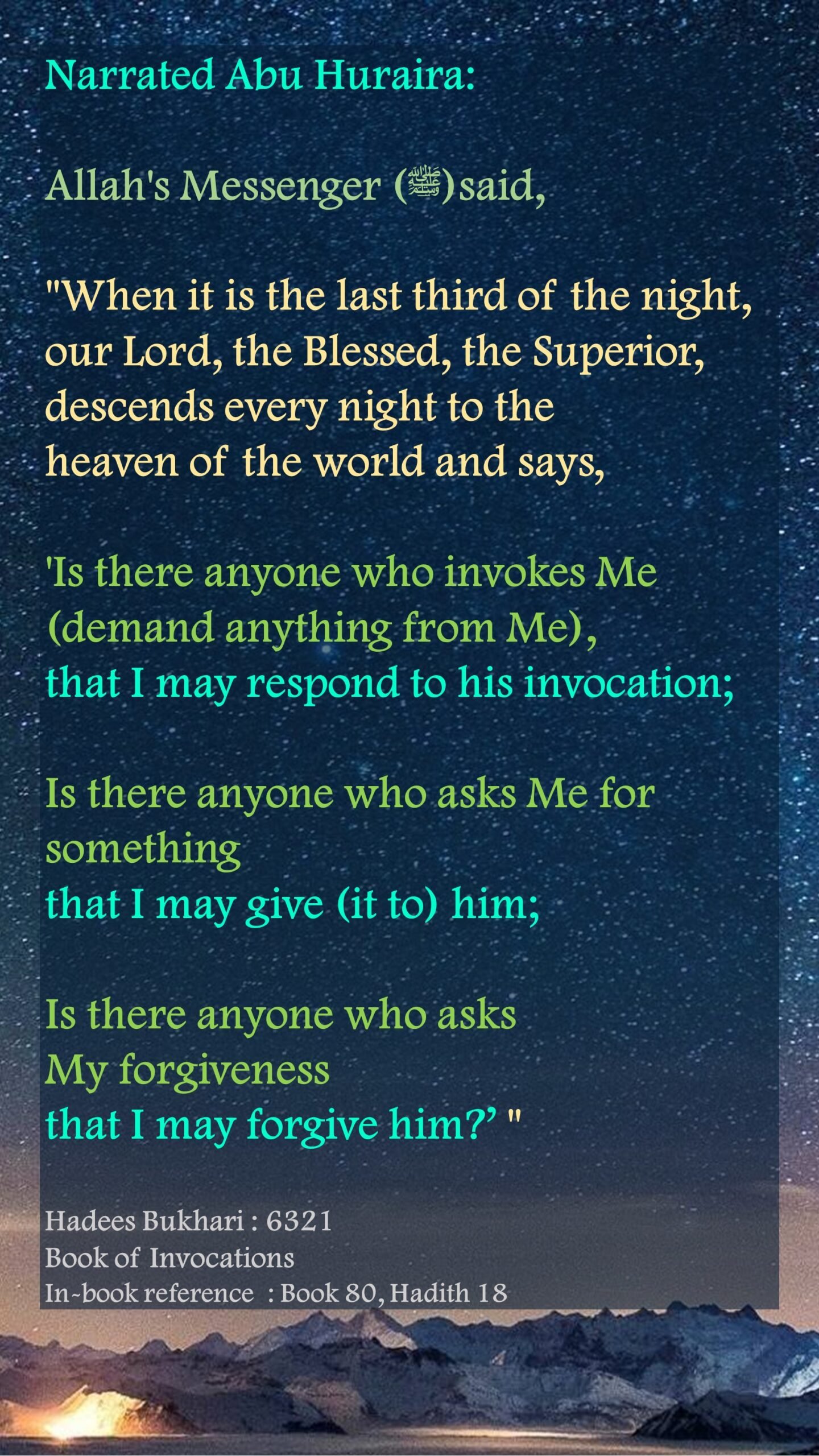Skip to Content
Tag Archives: every
- Home -
- Posts tagged "every"
1
Nov, 2025
Islam, Quran
028, 075, al-Qasas, Allah, ayat, daily, day, every, Faith, inspirations, islam, islamic, know, Muhammad, narrative, none, polytheist, quran, story, Surah
8
Jun, 2025
Hadees, Islam
2891, Allah, Allah's way, animal, being human, Book.Allah's cause, bukhari, charity, compulsary, congregational, daily, direction, every, Farz, fight, good, guide, hadees<Hadith, help, human, humanbeing, inspirations, islam, islamic, jihad, joint, lift, luggage, matter, Muhammad, Namaz, nimaz, obligatory, person, prayer, ride, road, sadaqa, Sadqa, step, strive, word, Zakat
31
Mar, 2025
Islam, Quran
003, 065, achieve, Allah, alone, at_talaq, ayat, daily, destiny, divorce, every, for, inspirations, islam, islamic, mindful, Muhammad, partial, provision, quran, quranic, source, sufficient, supplication, Surah, thing, trust, unimagined, will
23
Mar, 2025
Hadees, Islam
1366, accept, acceptance, answer, ask, Bless, Blessed, call, descend, every, forgive, forgiveness, get, grant, Ibn-e-Majah, last 10 nights, last third, layl-tul-Qadr, night, Night of Decree, night prayer, one third, oppurtunity, pray, prayer, Qadr, Ramazan, recieve, respond, seek, supplication, Tahajjud, voluntary
18
Jan, 2025
Hadees, Islam
3599, Allah, beneficial, benefit, condition, daily, every, fire, hadees, hadith, increase, inspirations, islam, islamic, knowledge, praise, refuge, taught, teach, tirmidhi, Tirmizi
19
Sep, 2023
Islam, Quran
Allah, argument, argumentatice, beings, creation, daily, every, humankind, humna, inspirations, islamic, Kind, lesson, most, quran, subject, Surah, type
20
Dec, 2022
Islam, Quran
All-Knower, Allah, astray, at-Taubah, avoid, ayat, Chapter 9, clear, daily, every, guide, inspirations, islam, islamic, quran, repentence, Surah, thing, Verse 115
28
Nov, 2022
Hadees, Islam
Allah, ask, daily, descend, every, forgiveness, grant, Heaven, inspirations, invoke, islam, islamic, last, Lord, messenger, Muhammad, night, PBUH, portion, respond, SAWW, third, World








